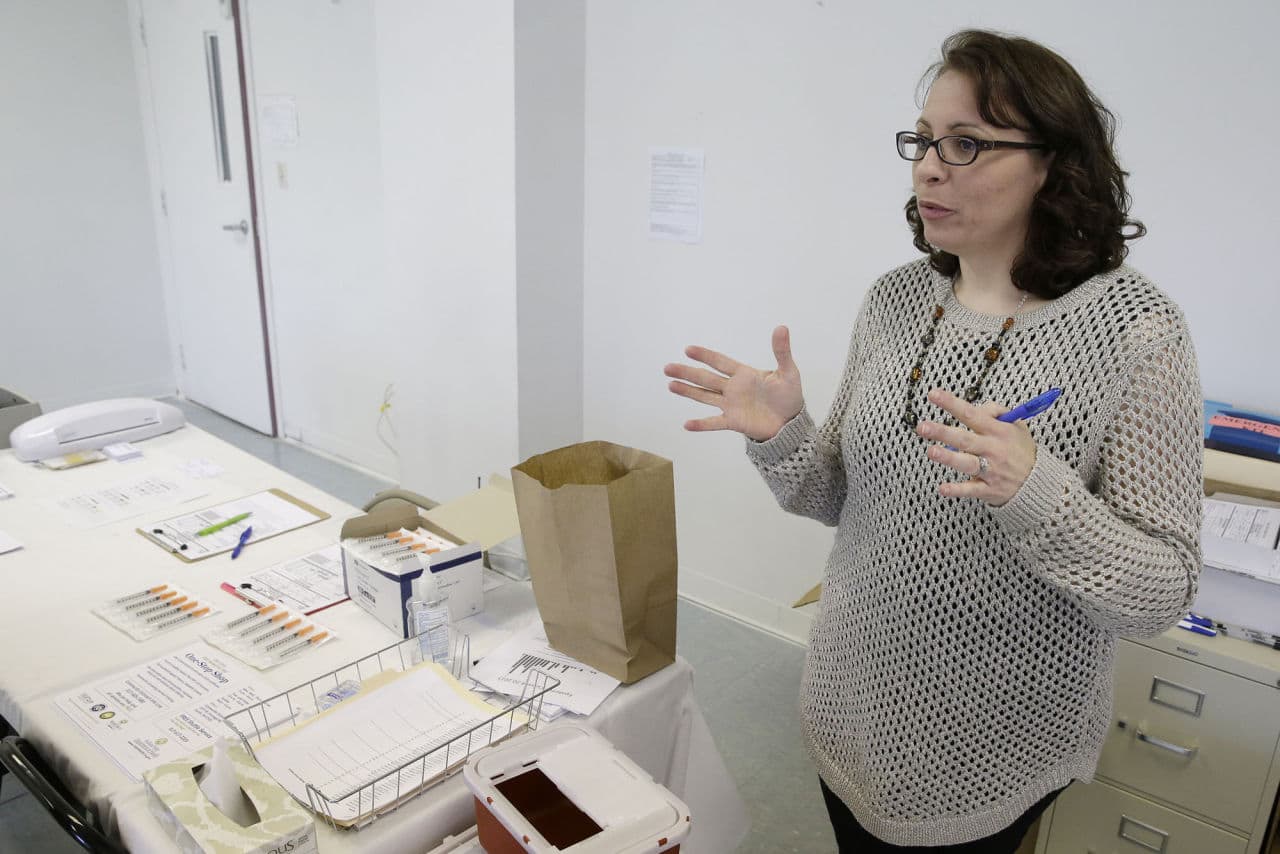Advertisement
A Growing HIV Crisis In Rural Indiana
ResumeWith guest host Jane Clayson.
Dirty needles, and the HIV crisis in rural Indiana. We’ll look at needle exchange programs and root causes behind the skyrocketing numbers.

Austin, Indiana, a town with just 4,200 people, is in the throes of a HIV outbreak. Austin is poor. With a huge opiate addiction problem. Addicts are sharing dirty needles. The governor declared a state of emergency and Tuesday expanded a needle exchange program to address the crisis. The issues facing Austin – addiction, poverty, unemployment –aren’t unique to rural Indiana. Communities across the country face similar challenges. With dire outcomes. This hour, On Point: Indiana’s HIV outbreak, needle exchanges and America’s enduring drug problem.
-- Jane Clayson
Guests
Jake Harper, health reporter for WFYI, NPR's Indianapolis affiliate. (@jkhrpr)
Beth Meyerson, professor in the Indiana University School of Public Health. Co-director at the Rural Center for AIDS / STD Prevention. (@beth_meyerson)
Julie Foltz, manager of Aspire Indiana's HIV AIDS Services.
Katie Bouche, syringe access services manager at the San Francisco AIDS Foundation.
From The Reading List
WFYI News: Indiana Passes Needle Exchange Bill — "The number of people infected with HIV continues to grow in Scott County. Earlier this week, more than 140 people had tested positive. To try and prevent similar outbreaks from occurring in other counties, the General Assembly took action Wednesday on a bill that would allow needle exchanges in some counties. Needle exchanges allow drug users to trade their dirty needles for clean ones, and help reduce the spread of infections such as HIV."
New York Times: Rural Indiana Struggles to Contend With H.I.V. Outbreak — "The crisis would test even a large metropolis; Austin, population 4,200, is overwhelmed despite help from the Centers for Disease Control and Prevention, the state and nonprofit groups like the AIDS Healthcare Foundation. H.I.V. had been all but unknown here, and misinformation is rife. Attempts to halt the outbreak have been hindered by strong but misguided local beliefs about how to address it, according to people involved in the response."
Matter: Small Town America: This Is Your War On Drugs — "The drug problem in Scott County is entrenched, multi-generational, and occurs in families; it’s a metastatic cancer, not an easily excised tumor. The CDC reports that, per user, there’s an average of 4–15 injections per day, shared with as many as six people. According to a public health nurse with the Scott County health department, it is not uncommon for a single needle to be used upwards of 300 times, until it literally breaks off in someone’s arm. Although you can buy needles and syringes here over-the-counter, you have to sign a log and besides, the pharmacist can refuse to sell them to you anyway. And even if the needles flowed freely, it’s illegal to be in possession of such drug paraphernalia without a prescription. So, you can buy them. But it’s illegal to have them."
This program aired on May 7, 2015.